
Robert Rollock was Scottish academic and minister in the Church of Scotland, and the first regent and first principal of the University of Edinburgh. Born into a noble family, he distinguished himself during his education at the University of St Andrews, which led to him being appointed regent of the newly created college in Edinburgh in 1583, and its first principal in 1586.

Alexander Henderson was a Scottish theologian, and an important ecclesiastical statesman of his period. He is considered the second founder of the Reformed Church in Scotland. He was one of the most eminent ministers of the Church of Scotland in the most important period of her history, namely, previous to the middle of the seventeenth century.
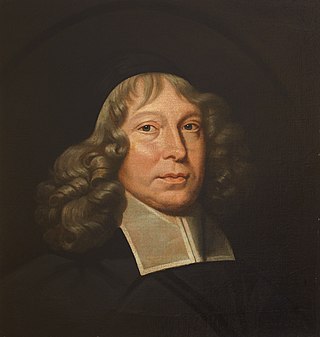
Samuel Rutherford was a Scottish Presbyterian pastor and theologian and one of the Scottish Commissioners to the Westminster Assembly.
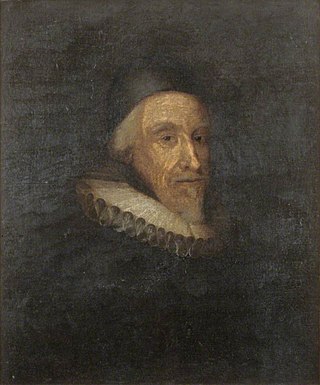
Andrew Cant (1584–1663) was a Presbyterian minister and leader of the Scottish Covenanters. About 1623 the people of Edinburgh called him to be their minister, but he was rejected by James I. Ten years later he was minister of Pitsligo in Aberdeenshire, a charge which he left in 1638 for that of Newbattle in Midlothian. In July of that year he went with other commissioners to Aberdeen in the vain attempt to induce the university and the presbytery of that city to subscribe the National Covenant, and in the following November sat in the general assembly at Glasgow which abolished episcopacy in Scotland. In 1638 Cant was minister of Pitsligo in Aberdeenshire. In 1640 he was chaplain to the Scottish army and then settled as minister in Aberdeen. Though a staunch Covenanter, he was a zealous Royalist, preaching before Charles I in Edinburgh, and stoutly advocating the restoration of the monarchy in the time of the Commonwealth. Cant's frequent and bitter verbal attacks on various members of his congregation led in 1661 to complaints laid before the magistrates, in consequence of which he resigned his charge.
Gilbert Rule was a nonconformist Church of Scotland minister and the Principal of the University of Edinburgh from 1690 to 1701.
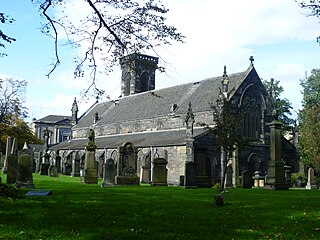
William Wishart (1660–1729) was a Church of Scotland minister and the Principal of Edinburgh University from 1716 to 1728. He is not to be confused with his son William Wishart (secundus), who was subsequently the Principal of Edinburgh University from 1736 to 1754.
Robert Douglas (1594–1674) was the only minister of the Church of Scotland to be Moderator of the General Assembly five times.
The Aberdeen doctors or doctors of Aberdeen were six divines working at Marischal College and King's College in Aberdeen, Scotland in the seventeenth century. Until 1635, they enjoyed the leadership of Patrick Forbes, Bishop of Aberdeen. They are distinguished not only for their positions at Aberdeen, but also by their irenicist opposition to the National Covenant of 1638. Their adherence to Episcopacy and their support for the Articles of the Assembly at Perth (1618), which prescribed several English forms of worship, form the backdrop of their opposition to the Presbyterian Covenanters.

Sir Thomas Burnett, 1st Baronet of Leys was a feudal baron and leading Covenanter who had represented Kincardineshire in the Scottish Parliament in 1621.
John Forbes of Corse was a Scottish Presbyterian minister and theologian, one of the Aberdeen doctors, noted for his eirenic approach in church polity and opposition to the National Covenant.

David Dickson (1583–1663) was a Church of Scotland minister and theologian.
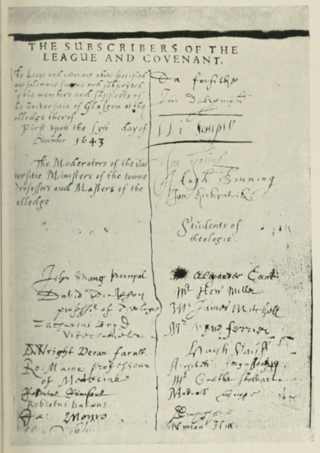
John Strang (1584–1654) was a Scottish minister and Principal of Glasgow University. He was a signator to the National Covenant of 1638.
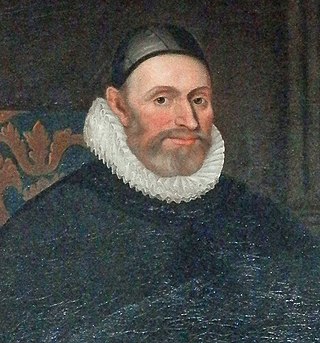
William Guild (1586–1657) was a Scottish Presbyterian minister, academic and theological writer.

Covenanters were members of a 17th-century Scottish religious and political movement, who supported a Presbyterian Church of Scotland and the primacy of its leaders in religious affairs. It originated in disputes with James VI and his son Charles I over church organisation and doctrine, but expanded into political conflict over the limits of Royal authority.

James Fraser of Brea (1639–1699) was a Covenanter.
Andrew Ramsay (1574–1659) was a minister of the Church of Scotland, academic at the University of Edinburgh, and writer of Latin poetry.
James Sibbald was a Scottish Royalist Presbyterian minister and theologian.
David Leitch was a Scottish philosopher who was commissioned to create various paraphrases and served as chaplain to the army during the English Civil War and as chaplain to King Charles II.
Robert Barron (1596–1639) was a Scottish academic who was elected Bishop of Orkney in the Church of Scotland but died before his consecration. He was the first Professor of Divinity at Marischal College.











